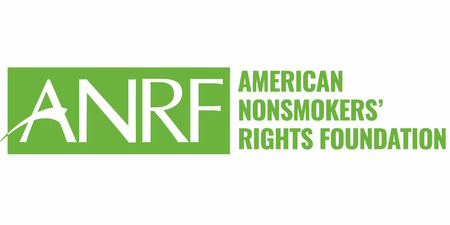Smokefree air is under attack. ANR/F’s team of expert staff and strategists is sounding the alarm on a troubling trend. Undermining strong and popular smokefree laws with a carve-out for cigar bars is nothing new, but the tobacco industry has dusted off this tactic and ignited a coordinated effort to renormalize smoking indoors.
A coordinated strategy
During the 2021 session, long-standing statewide smokefree laws in both Montana and North Dakota became industry targets as lawmakers went on the offensive to weaken their strong smokefree laws to carve out indoor smoking allowances for cigar bars. Deemed a ‘cigar bar only’ bill, we knew right away these laws were a classic bait and switch by the industry. By focusing the conversation on “premium products” not meant to be accessible or consumed by young people and thus, an adult choice with minimized harm, these laws were able to get traction. Fortunately, through collaboration of state and national partners to go on record with joint letters of opposition and calling public attention to exposing workers to toxic secondhand smoke, these efforts were thwarted.
Beyond the halls of the state capitol buildings, local decision makers began filing local ordinances on behalf of the industry under the guise of small business development. At this level, we began to take note that the cigar industry was specifically targeting decision makers of color. Through coordination with The Center for Black Health and Equity and The African American Tobacco Control Leadership Council, we were able to specifically connect the dots between tobacco industry strategies targeting African Americans as a target demographic for cigar culture. The effort to weaken the 15-year-old Louisville, KY, smokefree ordinance was narrowly defeated taking on the custom of bourbon, horse racing and cigar smoking. Other attempts are under way in Elkhart, Indiana, and Augusta, Georgia, and advocates are organizing to respond.
Smoke is Smoke: Even “premium products” pose a health risk
Cigar smoke, even from the products claimed to be premium in nature, pose a risk to the user and the bystander. According to the Centers for Disease Control (CDC) cigars contain the same toxic and cancer causing chemicals that are found in cigarettes. There is no safe level of exposure to secondhand smoke. Separate sections or ventilation systems cannot adequately address the risk posed by indoor smoking of cigarettes, cigars, or use of e-cigarettes. While at one time, cigars were predominately used by older men, industry targeting through the 1990s that include the release of flavored cigars and cigarillos has increased the use prevalence among youth and Black and Brown communities. Cigar bars are workplaces, and now is not the time to reintroduce smoking to any workplace exposing a new group of people, as well as those in neighboring or adjacent buildings, to secondhand smoke.
In addition to the health risks, the concept of a cigar bar is misguided from its inception. A cigar bar normalizes the act of indoor smoking and allows for secondhand smoke to infiltrate neighboring spaces. Decision makers behind these rollbacks often claim the intent is a singular venue in their district meant to provide a space for adult use and higher income customers. In practice, this is rarely the case. Language around exemptions is often vague and difficult to enforce, blowing the door open for other types of smoking businesses that may serve alcohol, food, and other beverages and further serve as an entertainment venue.
Skirting the FDA
The Food and Drug Administration (FDA) as part of the rulemaking process to regulate flavored tobacco products is facing mounting pressure to exempt premium cigars. According to the FDA, these products contain nicotine and are therefore addictive in nature and pose a health risk. There is no public health evidence to support a carve-out for these dangerous products. While nodding to this scientific evidence, the FDA failed to specifically mention the harmful health impacts of premium cigar use and further notes the concerns presented by manufacturers making the plea for exemption from FDA oversight. Skirting the FDA is a classic industry tactic that has been on display from the inception of their authority granted in 2009, in response to attempts to address the e-cigarette youth use epidemic and further restrict the flavoring of products that entice young people. Unfortunately, the price classification of the product does not ensure the safety of the user, or the bystander and in this case should not mean a pass from the FDA.
There is no off-season
We know from decades of experience that smokefree laws are popular. There has never been more demand for smokefree air. Our intention is to concentrate our energy on how to best close the gaps in smokefree protections for the 39% of Americans not protected from secondhand smoke at work. However, we must stay organized and vigilant to protect the integrity of the fabric of smokefree laws that are currently in place. We cannot put a premium on the progress we have made thus far.
Read more about Big Tobacco Interference






